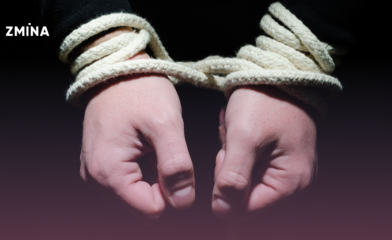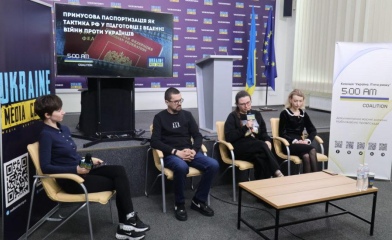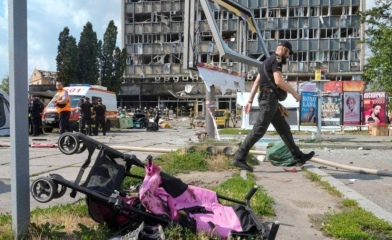On 20 February, as part of the media marathon "10 Years of Russian Aggression in Ukraine. The Road to Justice", a discussion panel entitled "10 Years of Russian Aggression: Remembering the Future" was held, attended by representatives of government agencies, civil society organisations, lawyers and business representatives.
The event was organised by the coalition "Ukraine. Five in the Morning" coalition. The speakers were Tamila Tasheva, the Permanent Representative of the President of Ukraine in the Autonomous Republic of Crimea, Olga Kuryshko, Deputy Permanent Representative, and Olga Kuryshko, an expert of the Ukraine. Five in the Morning" coalition, Azones partnerDaria Svyrydova, journalist, founder of the NGO "Public Interest Journalism Laboratory" Natalka Humeniuk, Deputy Director of the Ukrainian National Centre for Peacebuilding for Documentation of War Crimes, Armed Forces of Ukraine Oleksiy Bida, and CEO of Dentsu Ukraine Oleksandr Gorokhovsky.
According to the event organisers, the years of full-scale war have exacerbated the problems that Ukraine has faced since 2014, including the occupation of territories. Currently, Ukraine has no ready-made solutions to most of the problems caused by the ten-year war.
That is why the panelists were looking for ways to solve them and talked, in particular, about transitional justice and the search for justice, which is a significant demand of every Ukrainian. Another important topic is not only the restoration of the state in the de-occupied territories, but also the reintegration of people who have lived for years under occupation and with Russian propaganda all around them.
We also talked about the fact that Ukrainian society also has a demand for non-judicial ways to achieve justice. Citizens do not want those who have compromised themselves by collaborating with the enemy to be in government structures after the war is over. At the same time, it is important to talk about responsibility for the criminals who supported the occupation regime, rather than blaming and prosecuting all the people who remained under occupation and had to survive there.

According to the speakers of the event, one of the most difficult tasks for society and the state is to develop a vision and consensus on the responsibility for collaborationism.
Olha Kuryshko noted that transitional justice and related issues are a common cause for representatives of different fields of activity, and they should be coordinated.



